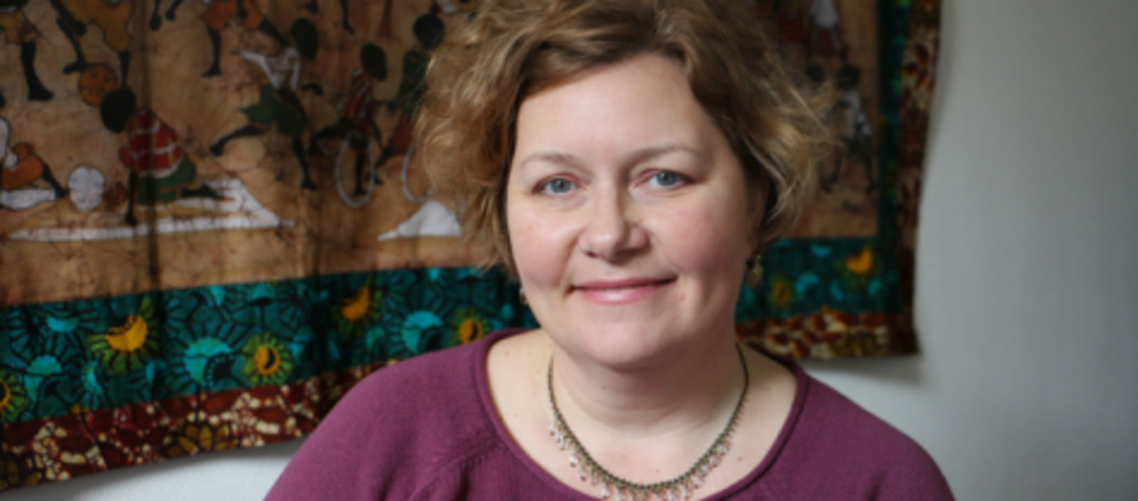Originally posted on 12 March 2018
African countries are popular destinations for tourists and travellers to engage in volunteer work, appearing regularly on the bucket lists of people interested in development work. This could be through financial support, or travelling to the country to make a well-intended impact on the local community.
Dr Kristen Cheney is Associate Professor of Children and Youth Studies for the International Institute of Social Studies. She researches children’s survival strategies in difficult circumstances and the politics of humanitarian intervention for such children, mainly in Eastern and Southern Africa. ECWO interviewed her about her research on the Orphan Industrial Complex in Uganda.
Cheney has a background in anthropology. Her first experience of the African continent was during college when she spent a summer conducting fieldwork in Uganda. Cheney found it transformative; she was determined to return to Africa and enrolled as a volunteer in the Peace Corps, where her liberal arts degree enabled her to work as an English teacher in Malawi.
A view of development work
According to Cheney, her experience of nearly two years in the Peace Corps encouraged her to conduct research into development issues. Upon her return to the United States, she completed graduate school and wrote her dissertation about development issues, with a focus on children. This dissertation resulted in her first book: Pillars of the Nation. In this book, Cheney draws on the detailed life histories of several children. She shows that children and childhood are being redefined by the desires of a young country struggling to position itself in the international community. She moves between urban schools, music festivals, and war zones to reveal how Ugandans are constructing childhood as an empowering identity for the development of the nation.
Orphanhood and poverty
Spending a lot of time with children in Uganda, she encountered children who had lost their parents to HIV/AIDS. Through her research, she concluded that the root of the problems of orphans is in fact poverty. In her book Crying for Our Elders: African Orphanhood in the Age of HIV and AIDS she explains how the HIV/AIDS epidemic in Africa has defined the childhoods of an entire generation, and how the global humanitarian focus on orphanhood often ignores the social and political circumstances that actually present the greatest adversity to vulnerable children – in effect.
The orphanage industry
The number of orphans has significantly decreased since the HIV/AIDS crisis, yet the number of orphanages has increased. Cheney argues that ‘saving orphans’ has become an industry that irrevocably harms children and undermines the development of child welfare systems. Financial donations and volunteer efforts directed at establishing orphanages usually come from a position of good intent. However, Cheney says that they can unintentionally fuel the proliferation of orphanages. The increase in the number of orphanages accommodates the growth of “orphan tourism”. In some cases, these children are without parental care but as much as 80% of children in orphanages have at least one living parent. Cheney says parents in poverty can easily be persuaded that their children are better off in an orphanage, facilitating or even constituting child trafficking. Annually, US$500 million is spent in the orphan tourism industry. Cheney asserts that this money would be more efficiently used if it was invested in the local community.
Protecting children
People should stop raising money for these orphanages and ideally, we should have a world without orphanages, says Cheney, because children grow up best in families. “I do not believe families are perfect, but research shows that children prosper best in family-like situations. In orphanages they do not have the contact and attachment that will help them prosper in life,” she says, and gives the example of the Ugandan authorities that are currently encouraging Ugandan middle-class families to adopt children. In addition, a new programme there provides community-based care to 2,000 families for the same cost as keeping 65 children in an orphanage. It will take a holistic approach, she says, providing support for the parents and reducing poverty without removing the children. Reversing the growth of orphanages should result in a brighter future for children and a decrease in child trafficking.
Conclusions
Cheney claims that we must replace the drive to rescue with the desire to protect. We have to address the cognitive dissonance that drives westerners to ‘save’ African children from the supposedly horrible fate of growing up in their own countries, communities, and families. This means confronting head-on the white saviour complex and all the uncomfortable echoes of colonialism and slavery that go along with it. Part of the problem is also that the ‘rescuers’ often have far more resources that the local child protection officers who are working hard to counteract the negative effects of the orphan industrial complex on the development of a more effective child protection system that would prevent the unnecessary separation of families and institutionalisation of children.
Cheney recommended a series of checks for anyone keen to help disadvantaged children without contributing to the orphanage industry.
- Don’t assume that the orphan numbers cited are accurate or transparent
- Don’t accept that poverty or single parenthood are legitimate reasons for removing children from families
- Don’t financially support orphanages
- Don’t be an orphan tourist. Children are not tourist attractions
Alternative ways of contributing to child welfare include:
- Supporting organisations that promote family preservation and strengthen communities’ capacities to care for orphans, through training of caregivers and social workers (child protection)
- Getting trained before working with vulnerable children
- Encouraging universities to sign the LSE university pledge to stop orphanage volunteering
- Encouraging national divestment from orphanages
- Discussing the research and evidence on the orphanage industry
